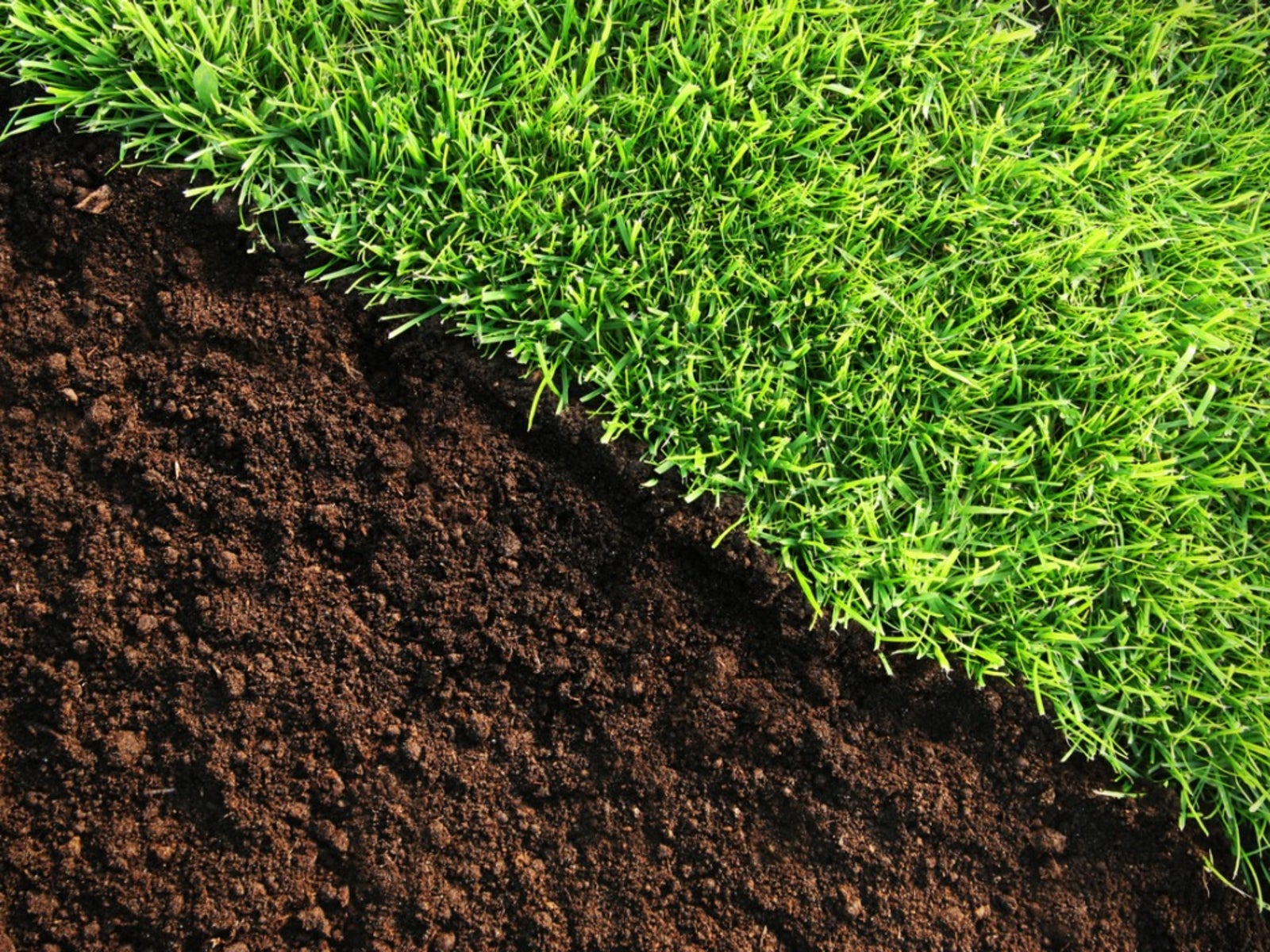
Sign up for the Gardening Know How newsletter today and receive a free copy of our e-book "How to Grow Delicious Tomatoes".
You are now subscribed
Your newsletter sign-up was successful
It may not be a common issue, but lawn and garden top dressing is occasionally something that needs to be addressed, especially when top dressing a lawn becomes necessary. So exactly what is top dressing? Continue reading to find out how to apply lawn top dressing in the landscape as well as the best top dressing for lawns and gardens.
What is Top Dressing?
What is top dressing? Top dressing is an application of a thin layer of soil over a turfgrass area and is used to smooth and level the surface or to modify the soil condition, usually no more than ¼ to ½ inch (6 mm. to 1 cm.). Top dressing is also used to control thatch, protect from extreme temperatures, and amend the soil medium around the roots. If the improvement of the soil is the goal, it is best to aerate prior to broadcasting the top dressing. Generally, it is used on golf greens and athletic fields to even the surface for play. Top dressing is not usually implemented on home lawns as it is quite pricey, however, it may be suitable for use in extremely wet or bumpy areas.
Best Top Dressing for Lawns and Gardens
The selection of the correct top dressing is extremely important in order to match the underlying soil and prevent layering. If unsure of the composition of your soil, it may be advisable to collect a sample for analysis or consult a landscaper or reputable lawn care service. Your local extension office can also be of help. Inspect the top dressing for debris, such as large rocks or weeds. Avoid chemically tainted agricultural soil that can kill turf. Compost is not recommended, as it may “smother” the roots. An organic soil, such as “Black Dirt” or dry sand will prevent water from penetrating too deeply and drowning the grass.
Amount to Use When Top Dressing a Lawn
When ordering top dressing, first determine the surface area and multiply by the depth of top dressing desired, generally, 1/8 to ¼ inch (3-6 mm.). Some extremely fertile, fast-growing grass areas need a thicker layer of top dressing and require top dressing more often. For example, one half cubic yard (0.4 cubic m.) of top dressing is needed to broadcast a 1/8 inch (3 mm.) layer over an area 10 feet by 100 feet (3 m. by 30 m.).
How to Apply Lawn Top Dressing
Professionals usually use a top dresser that is self-propelled and mounted on a utility vehicle. To top dress at home, the gardener should use a large spreader or shovel to fling the top dressing material. The top dressing material should be fairly dry to ensure ease and proper coverage too. Half the height of the grass blades should be visible to avoid killing the turf due to lack of sunlight. On larger areas, aerate the soil to mix the top dressing and existing soil. This improves water absorption from the surface to the sub soil. Use top dressing only during active growth periods (fall or spring) and not when it is hot and dry or during dormant turf phases. Top dressing cannot improve lawns affected by poor drainage and other built-in problems but has been shown to be beneficial in correcting matted turf, protecting against severe winter weather, improving water and nutrient retention, and alleviating disease and weeds.
Sign up for the Gardening Know How newsletter today and receive a free copy of our e-book "How to Grow Delicious Tomatoes".

Amy Grant has been gardening for 30 years and writing for 15. A professional chef and caterer, Amy's area of expertise is culinary gardening.
